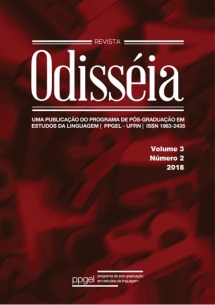Specters of exclusion and hunger
Vidas secas in the context of Brazilian social novels
DOI:
https://doi.org/10.21680/1983-2435.2018v3n2ID16016Keywords:
Narrative, Exclusion, Social criticism, Underdevelopment, Brazilian NortheastAbstract
This article aims to develop a critical analysis of the social exclusion in Vidas secas, by Graciliano Ramos. In this vein, we specifically focus on the representativeness of the novel as one of the best examples of what we conventionally call the second modernism generation. In turn, we seek to relate the social context of the Brazilian Northeast, marked by the scarcity of goods, due to long droughts, with the lexical economy that results in a clear example of the conciseness of what is configured as the novel’s element of greatest significance. Thus, we must reflect on the use of the aesthetic achievements of Modernism that have matured, and on a narrative that begins to question the place of man within a society that seeks to overcome the secular backwardness, using literature as a social theme and critical awareness about the Brazilian dilemma.
Downloads
Downloads
Published
How to Cite
Issue
Section
License
Thisa work has been licensed under Creative Commons - Atribuição - NãoComercial - CompartilhaIgual 3.0 Não Adaptada.


















